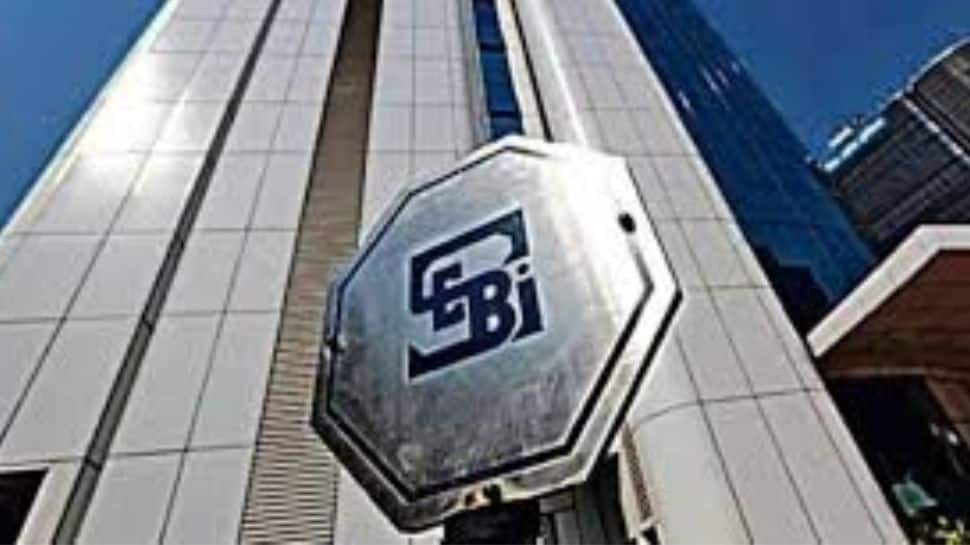Business
SEBI Pushes Back Retail Algo Trading Framework, Sets Phased Rollout Till April 2026

New Delhi: The Securities and Exchange Board of India (SEBI) on Tuesday once again extended the timeline for implementing its framework on “Safer participation of retail investors in algorithmic trading.”
The regulator said stock brokers will now get more time to comply with the new rules after many brokers and algo vendors requested additional time to make system-related changes.
The framework, which was earlier supposed to come into effect from August 1, 2025, was first postponed to October 1, 2025.
SEBI has now introduced a phased roadmap for implementation to ensure a smooth rollout.
As per the new schedule, brokers must apply for registration of at least one retail algo strategy through an API by October 31.
They will have to complete registration of retail algo products and some strategies by November 30 and participate in at least one full-fledged mock trading session by January 3, 2026.
Brokers who fail to meet these milestones will not be allowed to onboard new retail clients for API-based algo trading from January 5, 2026.
The entire framework, along with detailed operational standards, will become effective for all brokers from April 1, 2026.
Brokers who are not ready to go live by October 1, will also have to submit information about their existing clients as of September 30, to the exchanges.
SEBI said the guidelines aim to clearly define the rights and responsibilities of investors, brokers, algo providers, vendors, and market infrastructure institutions such as exchanges, depositories, and clearing corporations.
Under the rules, all algorithmic trading strategies will need to be registered with stock exchanges and assigned a unique identification.
This mechanism will help exchanges track algo orders placed through Direct APIs. Algo providers will also have to be empanelled with the exchange before registering their products, and the process will have to be done through a trading member before an algo ID is issued.
Business
Bessent says Argentina peso bet was ‘homerun deal’

US Treasury Secretary Scott Bessent said his risky US gamble on Argentina’s currency has paid off.
Bessent said American financial support had been repaid and the US no longer held any Argentine pesos in its exchange stabilisation fund.
The US had purchased the then-plunging currency last year in an effort to stave off further turmoil and boost the party of President Javier Milei, a key ally of President Donald Trump, in the run-up to national midterm elections.
The move sparked criticism from Democrats, who accused Bessent of risking taxpayer money on a country with a long history of financial turmoil.
In the end, Bessent said the manoeuvre had been a success.
“Stabilising a strong American ally – and making tens of millions in profit for Americans – is an America First homerun deal,” he wrote in an announcement on social media.
When the US moved to intervene in September, people were dumping the peso, mindful of the shocks they had experienced after previous elections and rattled by signs that Milei’s party might experience an upset in the mid-terms.
Bessent promised to do “what was needed” to stave off further drops in September. He announced a month later that the US had purchased pesos and agreed to extend a swap line to Argentina, allowing the country to exchange pesos for dollars.
The move helped to halt the falls in the currency, which saw further gains after Milei’s party clinched a landslide victory in the mid-term elections, though it has drifted lower more recently.
Argentina’s central bank said it settled the swap line in December. It ultimately traded just $2.5bn in pesos for dollars of a possible $20bn, according to a government report on deal.
The report said the US had also separately provided $872m in support involving reserves held at the IMF.
The Treasury Department did not immediately respond to a request for comment on that transaction.
“Getting your money back is a straight forward definition of a success,” said Brad Setser, senior fellow at the Council on Foreign Relations, even if he said tens of millions in profit was “small change” given the sums involved.
But he said big challenges continue to face the Argentine economy, given how much it spent last year from its reserves to prop up the currency.
“It’s been a short term success – Bessent got his money back,” he said. “I do remain worried that the Argentines are relying too heavily on the expectation that Secretary Bessent will ride to the rescue … and therefore aren’t showing enough urgency in their plans to rebuild their own reserves.”
Business
Housebuilders in focus as firms set to reveal figures amid sluggish market

Housebuilding giants will be centre stage next week as Persimmon, Vistry and Taylor Wimpey publish trading updates that are expected to offer a fresh snapshot of the UK housing market.
The updates will be closely watched by Government ministers, who have pledged to accelerate housebuilding, and by investors looking for signs of recovery and the Budget’s impact on the housing market as the UK heads into 2026.
Persimmon is due to publish a full-year trading statement on Tuesday, while Vistry will announce its fourth quarter trading statement on Wednesday and Taylor Wimpey a trading statement on Thursday.
UK housebuilding activity has remained in its deepest slump since the start of the pandemic, while the wider construction sector has been in contraction for a year, according to the latest S&P Global UK construction purchasing managers’ index (PMI) published on Wednesday.
The index rose slightly to 40.1 in December from 39.4 in November, remaining well below the 50-point level that signals growth, marking the 12th consecutive month of declining activity.
Survey respondents cited fragile confidence, weak demand and clients delaying decisions ahead of the autumn budget.
Richard Hunter, head of markets at interactive investor, said Persimmon “has been hamstrung by the wider factors over which it has little influence, including but not limited to a faltering domestic economy”.
However, Aarin Chiekrie, an equity analyst at Hargreaves Lansdown, highlighted that Persimmon’s homes are typically valued around 15% below the new-build national average, which “offers some resilience to ride current market challenges” and should provide some relief on building cost pressures.
Meanwhile Vistry, formerly Bovis Homes, has benefited from supportive government policy towards affordable housing, with average weekly sales rates rising by 11% between July and early November compared to the previous year, according to Hargreaves Lansdown.
On Friday, figures release by HMRC revealed UK house sales were 8% higher in November than a year earlier, with around 100,350 homes changing hands, an indication of some optimism in the market.
Jason Tebb, president of OnTheMarket, said: “With the budget done and dusted, uncertainty at least has been removed and those who put their moves on pause are returning to the market, encouraged by lower mortgage rates from some of the big lenders, with others expected to follow.
“As January progresses, well-priced homes continue to attract interest.”
Business
US job creation in 2025 slows to weakest since Covid

The number of jobs created in the US grew only modestly in December, as a weak year for the employment market in the world’s largest economy drew to a close.
Employers added 50,000 jobs in the final month of 2025, according to Labor Department data, which was fewer than expected. But the unemployment rate dipped to 4.4%.
Job gains last year were the smallest since 2020, when the Covid pandemic led to widespread cuts.
Businesses have been operating in an environment marked by US President Donald Trump’s dramatic policy changes, including tariffs, an immigration crackdown and cuts to government spending.
The US economy has held up in the face of these shifts, growing at an annual rate of 4.3% over the three months to September.
But the expansion – driven by steady consumer spending and a growth in exports – has not been accompanied by significant job creation.
On average, the US added just 49,000 roles per month in 2025, down from an estimated gain of two million a month the year before.
The Labor Department said the US also added 76,000 fewer new positions in October and November than previously estimated.
Retailers and manufacturers were among the sectors reporting losses last month, which were offset by hiring at health care employers, bars and restaurants.
The data underscores the mixed dynamics facing job-seekers in the US, where hiring has cooled markedly over the last year but fears of mass layoffs have not materialised.
The US Federal Reserve central bank has responded to the slowdown by cutting its key lending rate in hopes of giving the economy a boost, despite concerns that inflation is still bubbling.
But the central bank is divided about how much lower borrowing costs should go.
Analysts said the latest figures – which showed the jobless rate recovering to the 4.4% level where it stood in September – would do little to resolve those debates.
“Today’s report confirms what we think has been evident for some time—the labor market is no longer working in favour of job seekers,” said Ellen Zentner, chief economic strategist for Morgan Stanley Wealth Management.
But she added: “Until the data provide a clearer direction, a divided Fed is likely to stay that way. Lower rates are likely coming this year, but the markets may have to be patient.”
-

 Sports4 days ago
Sports4 days agoVAR review: Why was Wirtz onside in Premier League, offside in Europe?
-

 Politics4 days ago
Politics4 days agoChina’s birth-rate push sputters as couples stay child-free
-

 Entertainment2 days ago
Entertainment2 days agoDoes new US food pyramid put too much steak on your plate?
-

 Entertainment4 days ago
Entertainment4 days agoMinnesota Governor Tim Walz to drop out of 2026 race, official confirmation expected soon
-

 Sports5 days ago
Sports5 days agoSteelers escape Ravens’ late push, win AFC North title
-

 Business4 days ago
Business4 days agoAldi’s Christmas sales rise to £1.65bn
-

 Sports5 days ago
Sports5 days agoFACI invites applications for 2026 chess development project | The Express Tribune
-

 Business4 days ago
Business4 days ago8th Pay Commission: From Policy Review, Cabinet Approval To Implementation –Key Stages Explained










